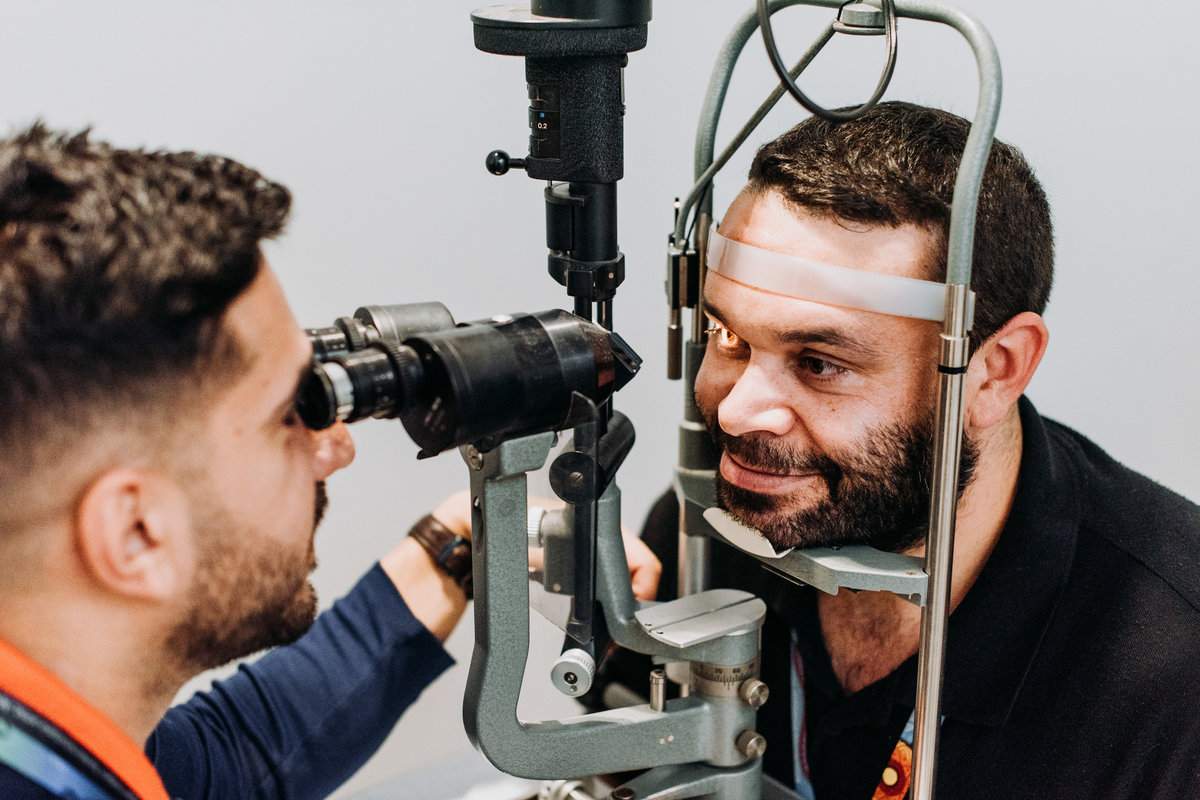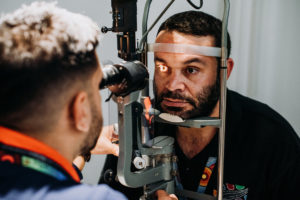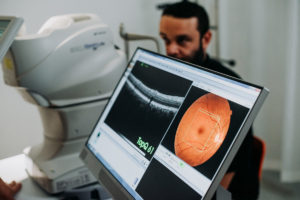
Early detection, increased screening and improved treatment options that combat diabetic retinopathy (DR), a leading cause of blindness in South Australian Aboriginal communities, is the aim of a new $1.4 million Medical Research Future Fund (MRFF) grant project.
Diabetes-related blindness is three times more likely to impact Indigenous Australians when compared to the rest of the population, affecting 19% of Aboriginal Australian adults with type 2 diabetes despite being a preventable condition with early detection and timely treatment.
Medical researchers and clinicians from Flinders University and the South Australian Health & Medical Research Institute (SAHMRI) will co-design, implement and evaluate a culturally appropriate model of eye care in partnership with Aboriginal communities and organisations to develop a program that improves screening rates and eye health outcomes in urban, regional and remote Aboriginal communities.
Clinical lead researcher & Academic Head of Ophthalmology at Flinders University, Professor Jamie Craig, says the increasing prevalence of type 2 diabetes in Aboriginal communities is linked with the rapid progression of blindness, and highlights the importance of improving current screening rates and treatment access, while also understanding the unmet cultural, social and clinical needs of Aboriginal people with diabetes.

“Diabetic retinopathy is an eye condition that damages the small blood vessels in the back of the eyes. Currently, we need to better understand the underlying risk factors contributing to blindness and we aim to do so through community-driven interventions that have a direct impact on the unmet eye care needs of Indigenous communities” says Professor Craig.
“We have established a consortium of leaders in Aboriginal ophthalmic disease, epidemiological and health services research, artificial intelligence, eye health service delivery, health policy and knowledge translation with a shared societal ambition – to prevent avoidable diabetes-related blindness.”
“The three year MRFF grant responds to the key health challenge of ending avoidable blindness to meet the needs of Aboriginal people at greatest risk of blindness through Aboriginal community-led interventions including tailored eye care delivery, targeted DR screening, improved treatment coverage rates and advanced eye imaging technologies.”
“This program represents an unparalleled opportunity to establish a landmark exploration of DR risk and develop a model of eye health care that leverages partnerships between Aboriginal people and communities, inter-disciplinary researchers, policymakers and health care systems.”

Kim Morey, a Senior Research Translation Manager with SAHMRI’s Aboriginal Health Equity Theme, agrees that productive partnerships are at the core of this project.
“Community involvement and endorsement is central to all of our research,” Ms Morey said. “We know that empowering community to help design and implement projects leads to better results and ultimately better health outcomes.
“The integration of the latest medical research into health service delivery ultimately seeks to bring about holistic change across the system to address avoidable diabetes-related blindness among Aboriginal and Torres Strait Islander people.”
The MRFF grant will enable researchers to:
- Co-design a DR model of care targeting the unmet social, cultural and clinical eye health needs of Aboriginal people
- Implement the community-led model of eye health care within service settings
- Evaluate the intervention impact on strengthening service system capabilities, screening rates, treatment coverage and vision-related outcomes.
Research team: Professor Jamie Craig (Flinders University), Tim Henderson (Alice Springs Hospital), Doctor Natasha Howard (SAHMRI), Associate Professor John Landers (Flinders University), Assistant Professor Johan Verjans (SAHMRI), Doctor Kootsy Canuto (SAHMRI), Mr Kurt Towers (SA Health) Doctor Stewart Lake (Flinders University), Ms Kerri Reilly (SA Health), Mr Jose Estevez (Flinders University)

